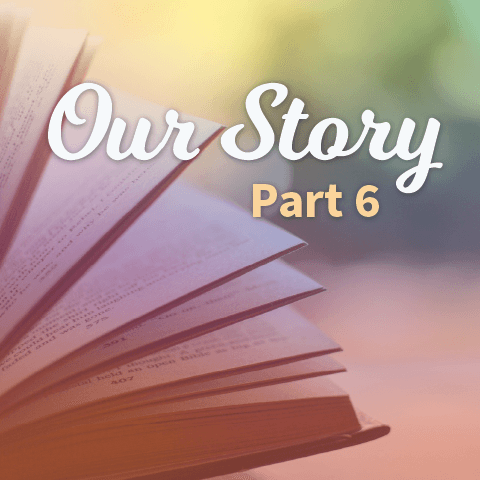
Our Story
Part Six: Learning a New Way
In Part 5, Marie transitioned to a memory care facility, and for the first time in 41 years, we were living apart. As I noted in that episode, although the move went well, not all moves happen that way. I have heard very sad stories where loved ones refuse to have anything to do with their primary caregiver after being moved into a memory care facility and sometimes accuse that caregiver of abandoning them. Fortunately, that didn’t happen with Marie and me. I believe that a large part of the reason is that our Care Manager (CM) and I purposefully selected a facility that resembled a camp, something that had some special link to Marie’s past (she attended summer camp for many years as a young girl), and, having an option that resembled her beloved Camp didn’t hurt. She loved it from the day she and I walked in together and, after two years of living there, she continues to feel a special bond to it. It also doesn’t hurt that she is treated so well by the staff and other residents. They have all gotten to know and love her, and she them. Those who are in the earlier stages of their illness, and are more functional, will often help her with things she can no longer do, such as feed herself. It warms my heart to see them together, like a separate family, looking out for each other. It also gives me a feeling of relief, since I know that she isn’t totally on her own when I’m not there.
One concept that it took me some time to ‘get,’ is that it’s important to recognize that although your loved one isn’t who they used to be, both cognitively and emotionally, they continue to need to be treated with dignity and to have friendships and a life of their own. This is especially the case, since they are no longer living with you 24/7. It doesn’t mean that they don’t love you, it simply reflects a recognition that your living situation has changed. So, while you are grieving the loss of the closeness you once had, it may appear to you that your loved one has moved on. From your loved one’s viewpoint, however (where memories are fewer, recognition is impaired, and anticipation may not exist) they are simply doing what they need to do to get along in a totally new environment. What I learned is that the best gift you can give them is not to view these changes as a rejection of you, but to celebrate their ability to have adjusted to living in the moment. To be frank about it, beyond some point, that’s all they have.
The important thing is that your love is still very much alive, but your needs have changed. Your loved one needs to acquire the ability to thrive with diminished capabilities in a new and unfamiliar environment; one where you are no longer available to run interference for them all day and in every situation. And you are probably living alone in a house that is three times too big for you, surrounded by your loved one’s belongings and memories of the life you once shared. And each day you live with the knowledge that you are headed down a path that will inevitably end with your loss of your loved one - and you cannot do anything to avoid it, change it, or stop it. This is where Marie and I find ourselves at this time. So, this is the end of Our Story for now. We still face the final separation, where this devastating disease takes us from each other completely. But, until then, I will continue to visit her (along with her dog, Harper), to advocate on her behalf, and to ensure that she has the best quality of life possible during the time we have left as a couple. And, I pray each day that even though I am three years older than Marie, I will be there with her and for her when she leaves this earth, even though she may not know that I’m there. After that happens, perhaps I can write the actual end of Our Story, to let you know what we experienced and to give you some insights into what may lie ahead on your journey. And, since that journey is a difficult one, it is important that we share our knowledge with one another along the way, and be a comfort to those who are struggling to adjust to this new way of living.
Until then, may God bless and take good care of you all.
About this Story
This is the final part of our story intended to reach out to members of the LGBTQ community of Washington, DC and its suburbs. We want you to know that you are not alone, and that you and your loved ones are welcome here at Insight.
Read More: Part One, Part Two, Part Three, Part Four, Part Five
Blog
"I like that IMCC focuses on dementia-related problems and provides a focal point for families to network and socially interact in coping with dementia. It provides a community that helps us in our struggle."







